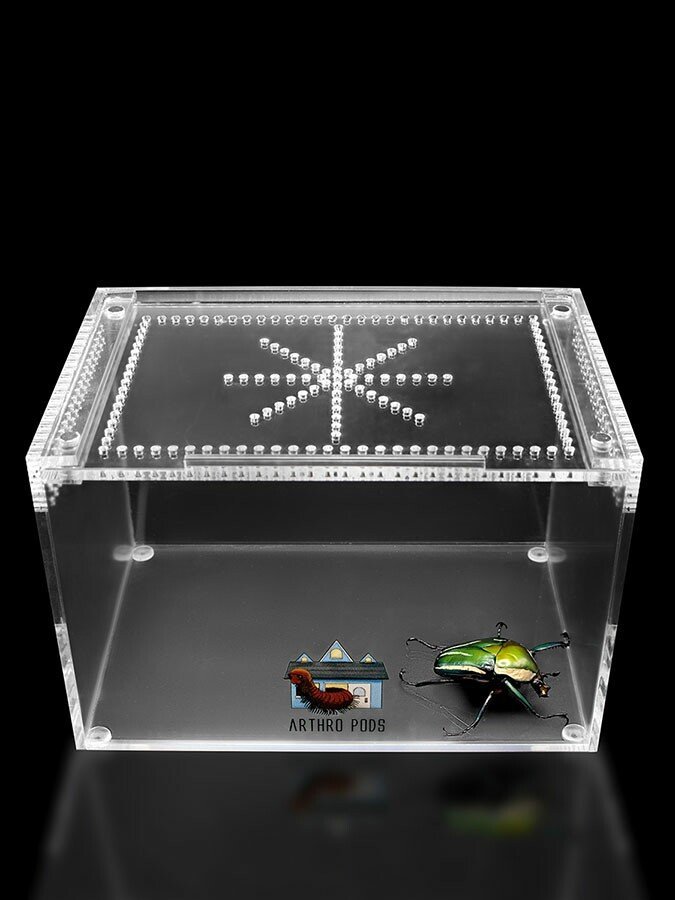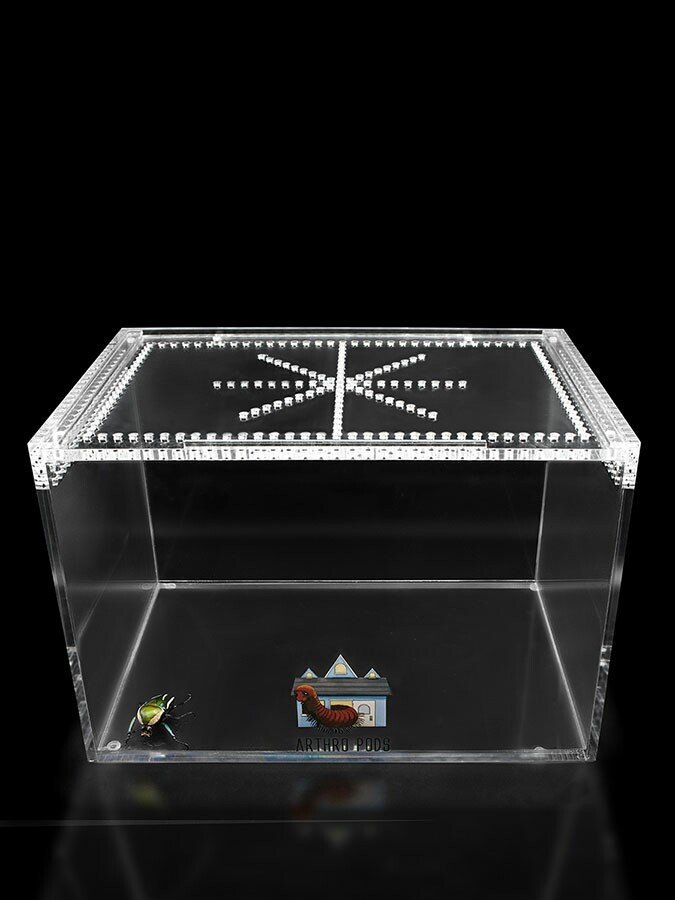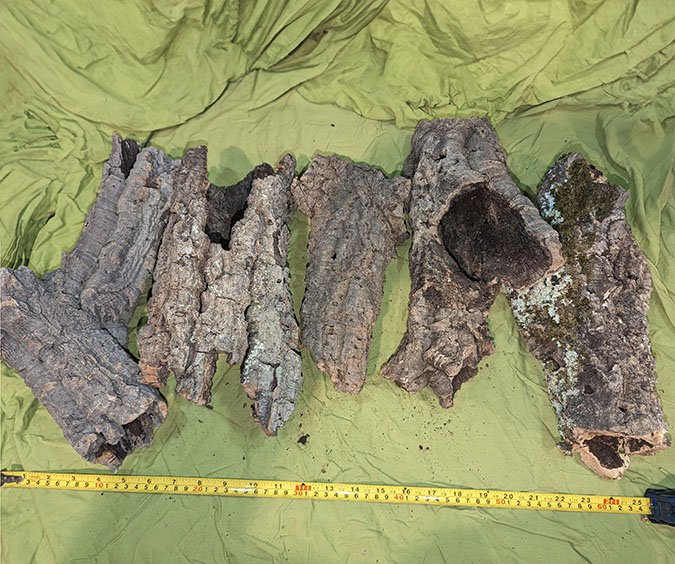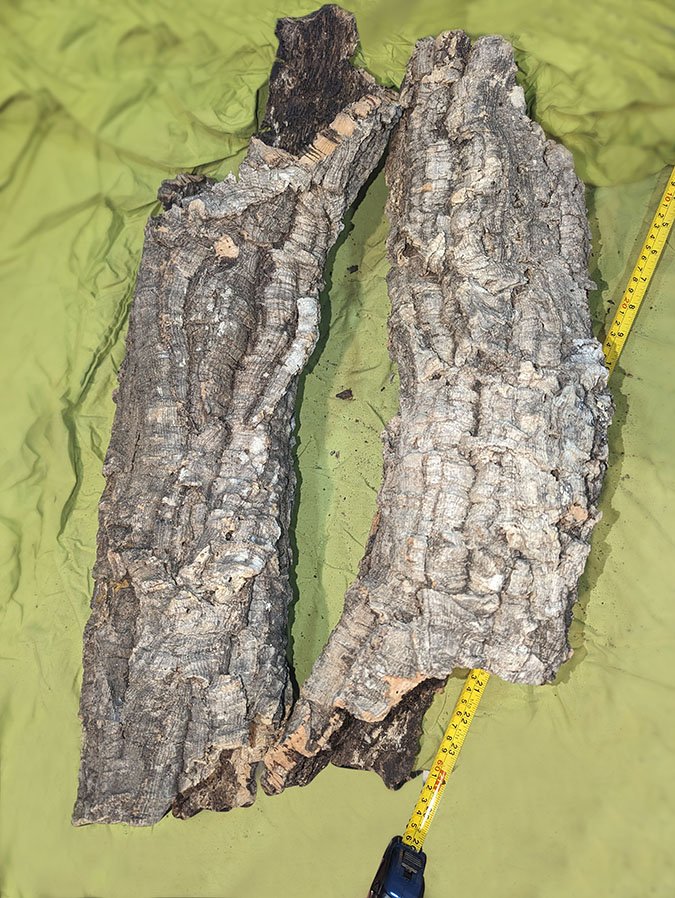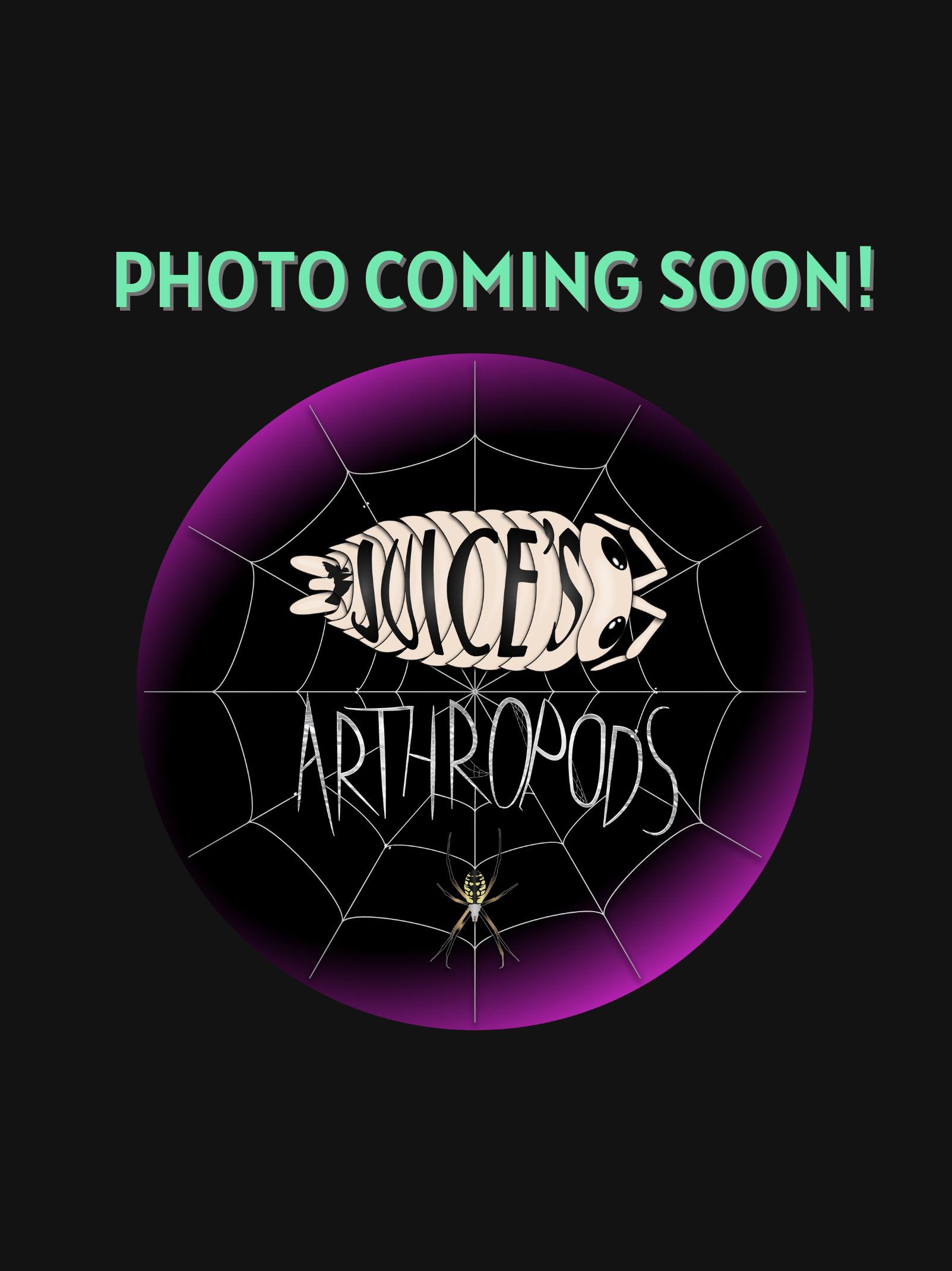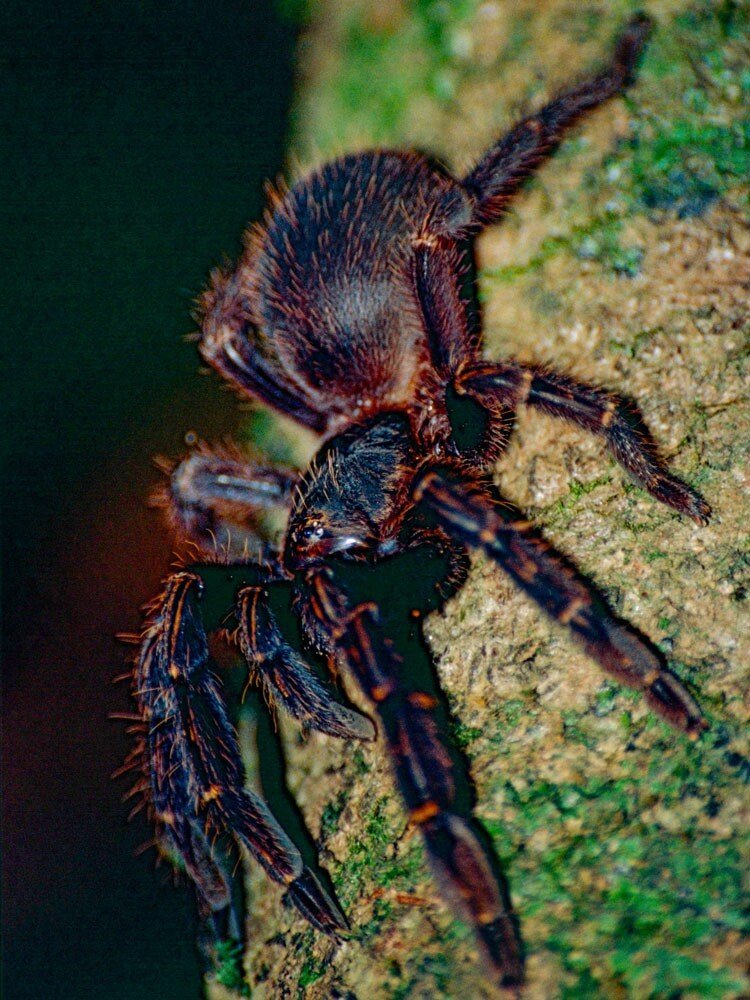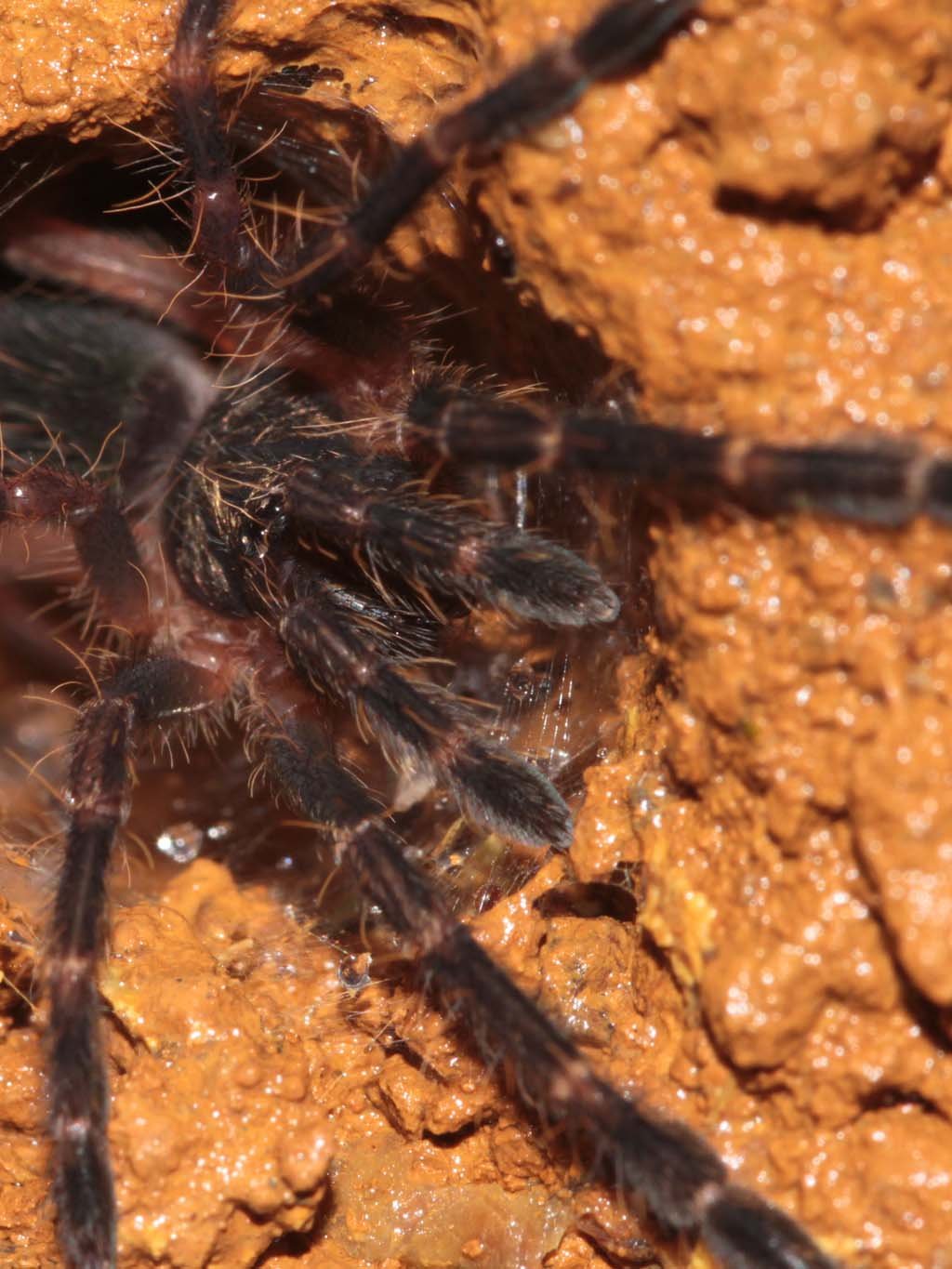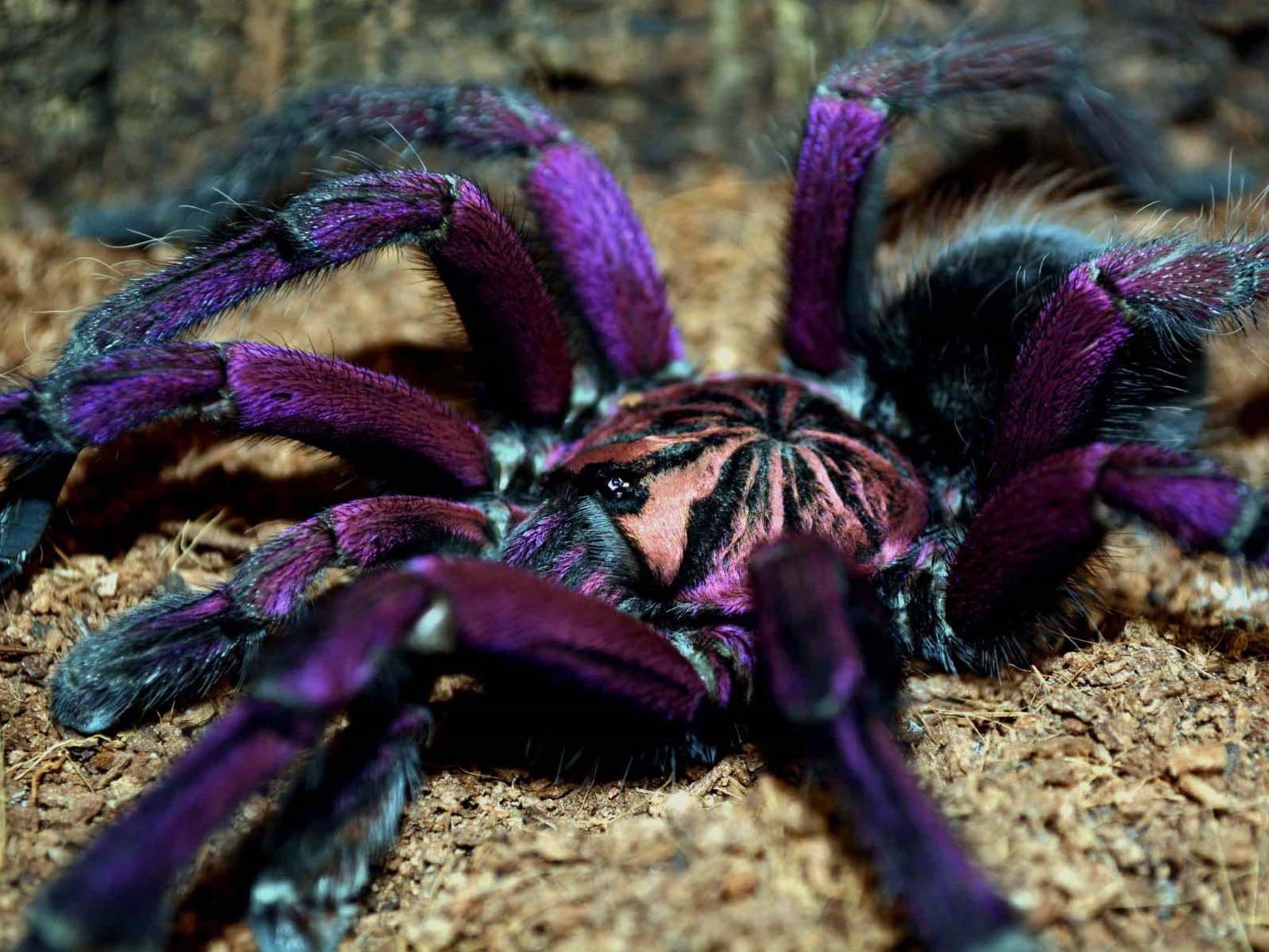 Image 1 of
Image 1 of


Pamphobeteus sp. 'Mascara'
Pamphobeteus sp. 'Mascara,’ or Mascara Giant Tarantula, is a large, terrestrial tarantula species originating from South America—likely Ecuador or Colombia. It belongs to the Pamphobeteus genus and is well-known for its massive size, iridescent coloration, and fast growth.
This species earns the name "Mascara" from the dark, eyeliner-like markings around its eyes, which give it a dramatic and distinctive look. Juveniles often display bright pink or purple hues on the abdomen, which may fade or shift as they mature into their more muted yet majestic adult coloration.
As a New World tarantula, the Mascara Giant is equipped with urticating hairs and tends to be defensive but not aggressive, often relying on flicking hairs rather than biting. It is a fast grower and requires a large terrestrial enclosure due to its eventual size and activity.
Pamphobeteus sp. 'Mascara,’ or Mascara Giant Tarantula, is a large, terrestrial tarantula species originating from South America—likely Ecuador or Colombia. It belongs to the Pamphobeteus genus and is well-known for its massive size, iridescent coloration, and fast growth.
This species earns the name "Mascara" from the dark, eyeliner-like markings around its eyes, which give it a dramatic and distinctive look. Juveniles often display bright pink or purple hues on the abdomen, which may fade or shift as they mature into their more muted yet majestic adult coloration.
As a New World tarantula, the Mascara Giant is equipped with urticating hairs and tends to be defensive but not aggressive, often relying on flicking hairs rather than biting. It is a fast grower and requires a large terrestrial enclosure due to its eventual size and activity.
Pamphobeteus sp. 'Mascara,’ or Mascara Giant Tarantula, is a large, terrestrial tarantula species originating from South America—likely Ecuador or Colombia. It belongs to the Pamphobeteus genus and is well-known for its massive size, iridescent coloration, and fast growth.
This species earns the name "Mascara" from the dark, eyeliner-like markings around its eyes, which give it a dramatic and distinctive look. Juveniles often display bright pink or purple hues on the abdomen, which may fade or shift as they mature into their more muted yet majestic adult coloration.
As a New World tarantula, the Mascara Giant is equipped with urticating hairs and tends to be defensive but not aggressive, often relying on flicking hairs rather than biting. It is a fast grower and requires a large terrestrial enclosure due to its eventual size and activity.
What's the ideal diet for a Mascara Giant Birdeater Tarantula?
All Tarantulas can eat a variety of feeders. Stick to crickets, dubia roaches, silkworms, horned worms occasionally, and a superworm or mealworm as the occasional treat!
How should I keep a Mascara Giant Birdeater Tarantula?
For this particular creature, you can start with the Terrestrial Terrain small enclosure if under a ¼" - 1.2" Spiderling (sling). When they get to be about 1" in size, you will want to either go to the Terrestrial Terrain Medium, or Terrestrial Terrain Large enclosure. Feed them as slings once a week, twice if their opisthosoma (abdomen) looks small, but if the opisthosoma is wider than their prosoma (pneumothorax) then wait a couple of days to feed. For juveniles or adults, stick to feeding once a week, nothing larger than their opisthosoma. Make sure to keep a water dish at all times full, wider and deeper is preferred.
How long could a Mascara Giant Birdeater Tarantula live?
Females are believed to live upwards of 20+ years, and males not exceeding around 5 years of age. All estimates are based on multiple sources.



